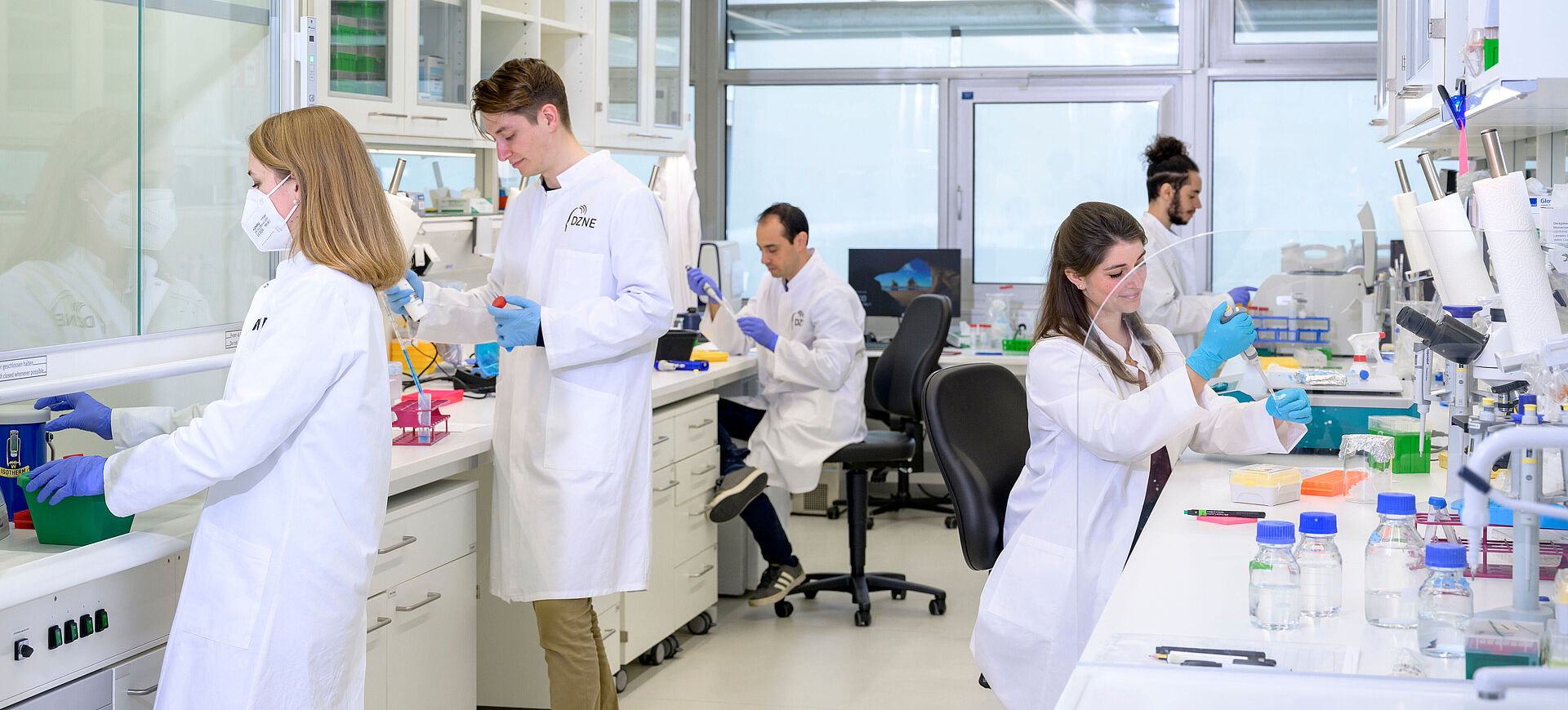
Prof. Karin Danzer, neuroscientist at the DZNE Ulm site, has received about 460,000 euros as a member of two collaborative research centers funded by the German Research Foundation (Deutsche Forschungsgemeinschaft, DFG) . The funding will mainly finance two doctoral positions in Danzer's research group. In these positions, cellular processes of Parkinson's disease will be investigated. The aim of both doctoral theses is to create the basis for new therapies.
Collaborative Research Centers (Sonderforschungsbereiche, SFB) are a funding instrument of the DFG to strengthen top-level research. Prof. Danzer's research group is involved in two SFBs. Funds from the grants will finance two doctoral positions in her research group for a period of three years each. Since the application must be submitted by a university, the coordination of these two projects with the participation of the DZNE lies with the University of Ulm. The SFBs are associated with Molecular Medicine and Trauma Medicine Ulm.
- The aging of the human body and the diseases and impairments that are often associated with aging are being researched in SFB 1506 "Aging at Interfaces". The researchers from different disciplines are examining interfaces at the cellular and molecular level that have an influence on the aging of tissues, organs or the entire organism. In his PhD project, Daniel Rombach, a doctoral student in Karin Danzer's research group, is investigating whether age has an impact on how immune cells deal with protein deposits in the brain. One focus here is on alpha-synuclein protein aggregates, which play a central role in Parkinson's disease. Within the framework of the doctoral thesis, laboratory studies will be conducted to develop a new therapeutic approach that targets the protein aggregates.
- In SFB 1149 " Danger Response, Disturbance Factors and Regenerative Potential after Acute Trauma", researchers are analyzing which mechanisms occur in the body after acute trauma (such as severe and most serious injuries) and how they are influenced. Alicia Goreth, a doctoral student at AG Danzer, is doing research on the relationship between trauma and Parkinson's: traumatic events such as sepsis (life-threatening inflammation that affects the entire body) or traumatic brain injuries have been associated with the onset and progression of Parkinson's. However, the molecular mechanisms behind this are not well understood. In laboratory studies, Alicia Goreth is analyzing whether traumatic brain injury or sepsis have an impact on the onset of Parkinson's disease or whether trauma worsens pre-existing symptoms of Parkinson's. The goal of her work is to identify new approaches to therapies and to decipher the molecular mechanism underlying the link between trauma and Parkinson's.
